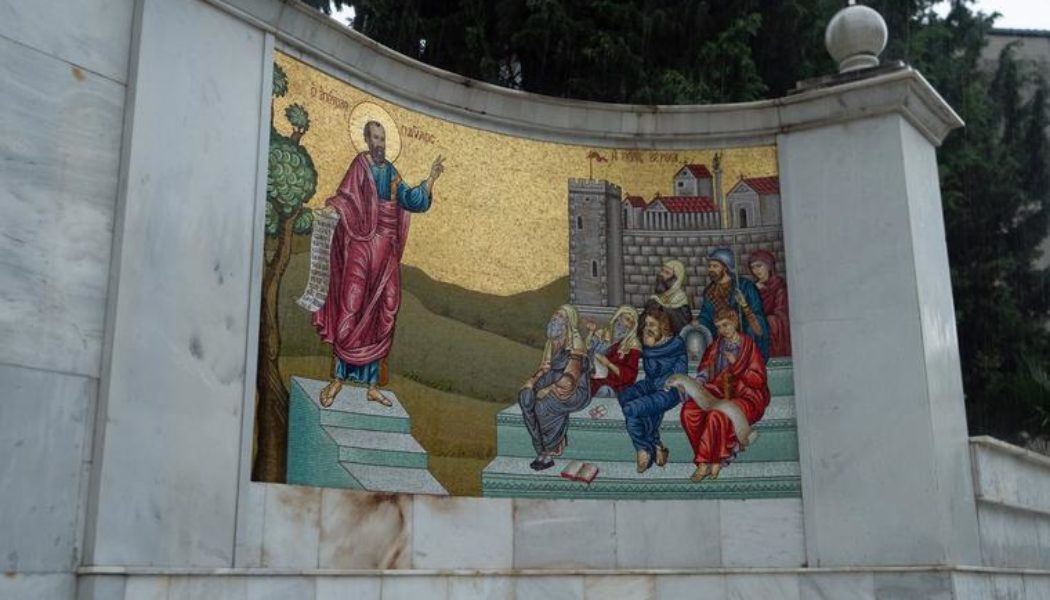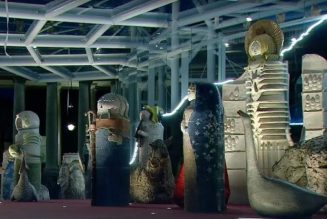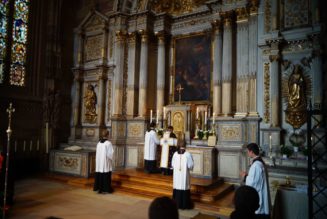
COMMENTARY: What did Joseph Ratzinger point out about a passage in the Acts of the Apostles that changes a seemingly brief and off-hand biblical travelogue into something that is so rich with meaning?
“Paul and his companions traveled throughout the region of Phrygia and Galatia, having been kept by the Holy Spirit from preaching the word in the province of Asia. When they came to the border of Mysia, they tried to enter Bithynia, but the Spirit of Jesus would not allow them to. So they passed by Mysia and went down to Troas. During the night Paul had a vision of a man of Macedonia standing and begging him, ‘Come over to Macedonia and help us.’ After Paul had seen the vision, we got ready at once to leave for Macedonia, concluding that God had called us to preach the Gospel to them” (Acts 16:6-10).
The importance of this Scripture passage has been with me for so long, I can’t now recall exactly where I read it. I think I first became aware of this passage from something in the writings of Joseph Ratzinger. No matter. I am always filled with awe when Acts 16:6-10 comes up in the lectionary for daily Mass, as it recently did.
It does not seem like a theologically significant passage. Nor does it seem especially philosophical. So, what did Joseph Ratzinger point out about the following passage in the Acts of the Apostles that changes a seemingly brief and off-hand biblical travelogue into something that is so rich with meaning for Catholic philosophers?
In this passage, the Church going to Greece appears to be divinely ordained. First, the Holy Spirit prevents Paul from going to Asia and keeps him and his companions in the land of the Greeks. Then, in verse 7, they try to go to Bithynia, in present-day Turkey. The Spirit of Jesus prevents them.
While they are in Mysia and Troas, also in Asia Minor, they still haven’t gotten the point. So God the Father sends Paul a vision in a dream that he can’t ignore. The Man from Macedonia specifically tells them, “Come over to Macedonia and help us.” As if to seal the point, verse 10 states that Paul concluded that God called him and his companions “to preach the Gospel to them.” Meaning the Macedonians. Meaning the Greeks.
Paul and his companions believed they were helping the people to whom they preached. And so they were. Little could they have known how the Greeks would ultimately help the Church! Christianizing the people of Greece meant that Christianity would encounter Greek philosophy.
This encounter meant that the Church “appropriated” aspects of Plato and Aristotle, while more or less leaving Epicurus and the Stoics on the cutting room floor. St. Augustine’s Neo-Platonism is well-known, as is St. Thomas Aquinas’ Aristotelianism. It is a complex story, to be sure. But Christianity, particularly in the West, embraced Greek philosophical tools, such as logic, the law of noncontradiction, a sophisticated understanding of causality and much more.
Catholicism has made good use of terms with precise philosophical meaning, including form, matter, substance, potency, act and a lot of others. All of this because the Divine Trinity prevented St. Paul from going to Asia!
I was once visiting a Catholic seminary and asked the young men what they were studying. They were, of course, studying philosophy, as is customary for Catholic seminarians in the beginning of their training. One of them told me that their professor told them, “You don’t have to be a Thomist or an Aristotelian. But if you are not a philosophical realist of some kind, you aren’t going to make it through seminary.”
As an economist, I personally received no formal philosophical training. Actually, that’s not quite true. I memorized the Baltimore Catechism in fourth grade, in preparation for confirmation. Only years later did I realize that the Baltimore Catechism was St. Thomas’ Summa Theologiae, adapted for children. So it would be more correct to say that my formal philosophical training ended in fourth grade.
Despite studying a materialist science like economics, I had, lodged in my mind, a pretty sophisticated set of philosophical categories. I’m grateful to the sisters who taught me that catechism. They helped keep me from falling into any number of the crazy thought processes that our world is so full of.
All those “dead white males” gave us tools to help us think with care and precision. We are now supposed to attack and discard the contributions of these men who made our advanced civilization possible. But please note: The people who are asking us to condemn “dead white males” have nothing of comparable value to replace their ideas with. These people are asking us to embrace illogic, unreason, and a host of mutually contradictory beliefs.
Jesuit Father Frederick Copleston, one of the great scholars of the 20th century, wrote a massive multivolume History of Philosophy. Volume 1 naturally covered Greece and Rome. Father Copleston’s closing line in that volume captures the importance of Christianity’s encounter with Greece:
“Christianity was not, of course, in any sense the outcome of ancient philosophy, nor can it be called a philosophic system, for it is the revealed religion and its historical antecedents are to be found in Judaism; but when Christians began to philosophize, they found ready at hand a rich material, a store of dialectical instruments and metaphysical concepts and terms, and those who believe that divine Providence is operative in history will hardly suppose that the provision of that material and its elaboration through the centuries was simply and solely an accident.”
I certainly do not believe this was in any sense an accident. And I, along with Joseph Ratzinger, look to Acts 16 for confirmation of that belief.









